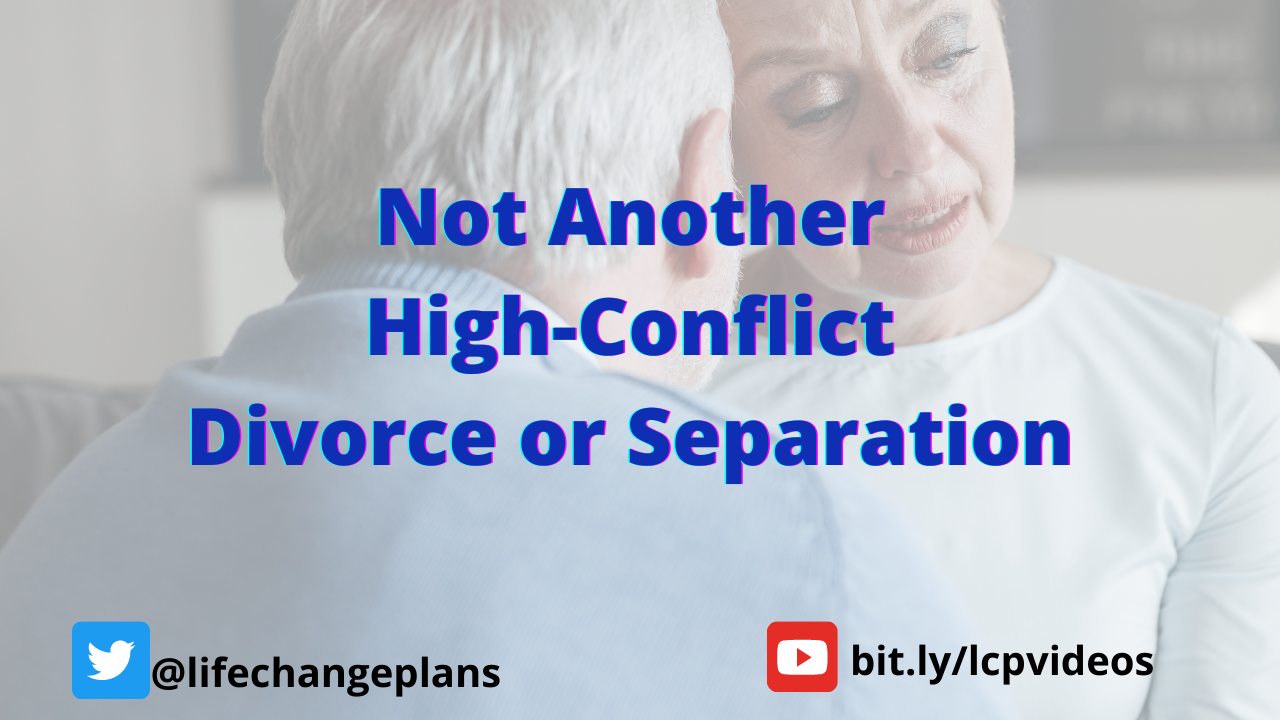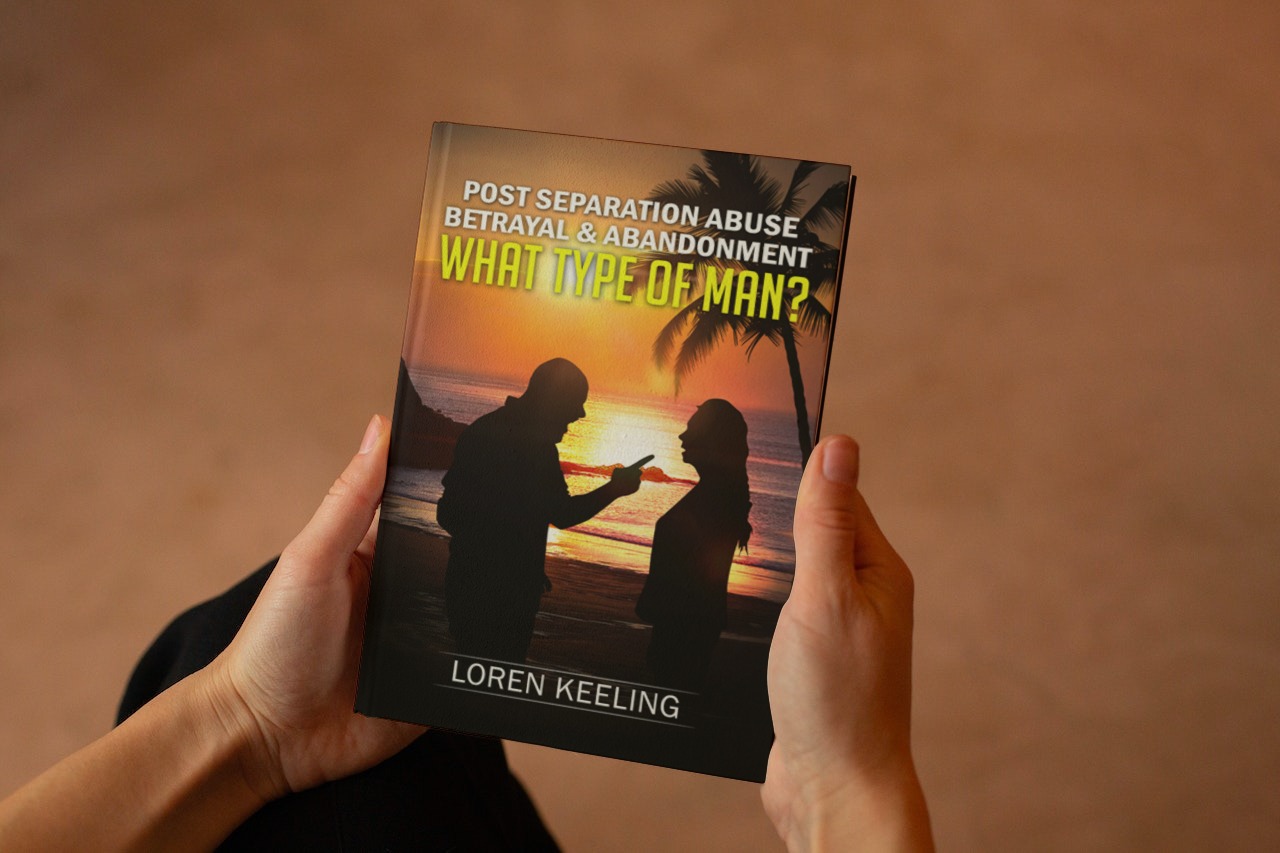It is not just another high-conflict divorce or separation. There are people who can ruin your life. They will destroy your reputation, your self-esteem or your career. High-conflict personalities will think nothing of leaving you emotionally and financially devastated.
In cases of post-separation after a relationship ends whether that is through divorce, abandonment or abrupt termination of a relationship when the couple were cohabiting, it can end in post-separation abuse in cases of being involved with high-conflict personalities.
Normal Situations vs High Conflict Situations
You can trust 80 to 90 per cent of people to be who they say they are, to do what they say they’ll do, and to follow most of the social and moral rules that help us live together. In a normal situation at the end of a relationship most of us try to resolve or defuse conflicts, but people with high-conflict personalities compulsively escalate disagreements. They will move the goalposts, you reach an agreement and just as the ink is dry on that they want to alter and change things.
A minor disagreement or even a difference of opinion can be taken out of context. A high-conflict personality type will point the finger of blame, twist the facts and reframe the narrative, then they will mercilessly attack—verbally, emotionally, financially, litigiously and sometimes violently—often for months or years. It doesn’t matter if the initial conflict was minor.
Abusive Relationships
The relationship may have been emotionally, psychologically verbally and even sexually abusive. There may have been some form of financial control or abuse of power dynamic. You may have experienced the speed at which the person can go from charming and nice to nasty and verbally abusive, especially in a phase of the relationship that I have termed the “he loves me, he loves me not.” stage, or the love bomb, devaluation. Oddly you might not have even been aware that what you were experiencing in the relationship was in fact abuse, there are many women who only become aware post-separation after the relationship has ended.

With high-conflict personalities the initial relationship moves quickly, you might hear them say something like, I feel as if I have known you a long time, they can be very charismatic and seductive. They may present as friendly, caring, kind and generous. So you can be drawn into the relationship, believing you have found a friend, a lover and a soulmate.
Red Flags
However, it may be a little while until you notice some negative traits that seem to creep in. They bring up past failed relationships and tell you how they were treated badly. The girlfriend who cheated on them, the wife who was frigid and did not enjoy sex, and a second wife who after separation was always messaging and contacting him. These are red flags to watch out for.
Other warning signs include, how quickly anger can escalate, they can go from having a normal conversation to being completely enraged at the speed of lighting. Another is emotional immaturity, people who lack emotional development can’t handle stressful situations or take responsibility for their actions. Immature men will rather blame others for their actions, and they rarely think about their future. Mature adults pay attention to the effect of their actions on other people. When ending a relationship they can be sympathetic and act with empathy, and not just blurt out the first thing that comes into their minds. Like ending a relationship by saying, “I’m in love with another woman, we can stay friends, if you want to remain friends, we just can’t have sex anymore.”
How A Mature Adult Could End A Relationship
A mature adult will give a person time to process things. Not add to the trauma and grief of ending the relationship. They may say, “I’ve not been happy in our relationship for a number of months now, I think we have drifted apart, maybe we should think about separating, we can see how things go in the next 3 months and if the situation has not improved then we can discuss how we can end things.”
This is a much kinder way of providing difficult information and gives the other person some space to process the thought of the relationship coming to a close.
It gives the other person time to think about if they are happy. To decide if the best thing is to end the relationship with no harshness, or shock. An abrupt ending is like a sudden death. The grief and trauma experienced can be ten times worse. The conflict does not end, it continues past the point of the relationship that had ended.
Difficult Endings vs Abusive Endings
Ending relationships is always going to be difficult. There are many things to consider, including emotional well-being, and the economic and financial security of each person. With a high-conflict personality type, they will have no qualms about leaving a partner or spouse in emotional psychological and financial devastation. They will not be interested in trying to resolve things amicably, despite what they may have promised you.
As I said at the start high-conflict personalities will mercilessly attack—verbally, emotionally, financially, and litigiously. Yet, the solicitors, the police, the courts the judges will not see this as an abuse of power, during a contested divorce. Even worse when the couple were cohabitating, when the divorce laws do not cover the non-married relationship. Domestic abuse laws cover the emotional and psychological abuse of power and control post-separation. However, when women try to seek justice on the grounds of emotional and psychological abuse they are being told it’s very difficult to prove emotional abuse.
Why I published my first book.
This is an example of how a conversation can go from normal to total enraged anger in a split second.
The recording is from a twenty-three-minute-long meeting held on September 15th 2020.
I first published this in November 2020. Just a few days after I discovered that the Ex had proposed to his new girlfriend. He complained that it showed how poisonous I was.
I reinstated the video a year later.



